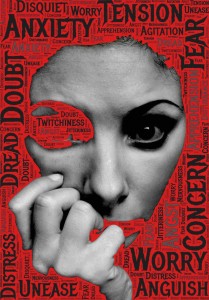
The ability to process anxiety in a healthy way is critical to maintaining your quality of life. It is even more important for someone who is experiencing chronic pain. Anxiety is a reflection of your body chemistry changes when you are in an arousal state. Your senses are heightened and your perception of pain is heightened. (1)
There are several principles I have learned from my own experience and working with my patients:
- Untreated disruptive anxiety always gets worse. It will NEVER get better on its own.
- Anxiety is the pain. It is simply indicating, “danger” whether it is real or perceived.
- Anxiety is highly treatable if it is acknowledged and treated as a physiological problem and not psychologically.
- Anxiety is both normal and necessary–it will never disappear. Every living creature is programmed to avoid situations that would potentially affect its survival.
- It is important to separate the threat from the chemical reaction (anxiety).
- Mental pain is more disruptive to people’s lives than physical pain.
- The harder you try to suppress fear, the stronger it will become. (2) White bears
- Avoiding anxiety becomes its own stressor.
- It is necessary to learn to live with anxiety; is it not solvable.
- The way to decrease anxiety is to utilize methods that lower the stress hormones. The ultimate answer is to learn to switch over to “play” chemicals. It is a set of learned skills and not “mind over matter” or “positive thinking.”
I think that unrelenting and uncontrolled anxiety is intolerable and the one of the worst aspects of being a human. It will infiltrate every corner of your life. I find it tragic that such a treatable problem is so often not adequately addressed because of the incorrect perception of what it represents. It is actually your gift of life.

- Chen X, et al. “Stress enhances muscle nociceptor activity in the rat.” Neuroscience (2011); 185: 166-173.
- Wegener DM, et al. “Paradoxical effects of thought suppression.” Journal of Personality and Social Psychology (1987); 53: 5-13.
